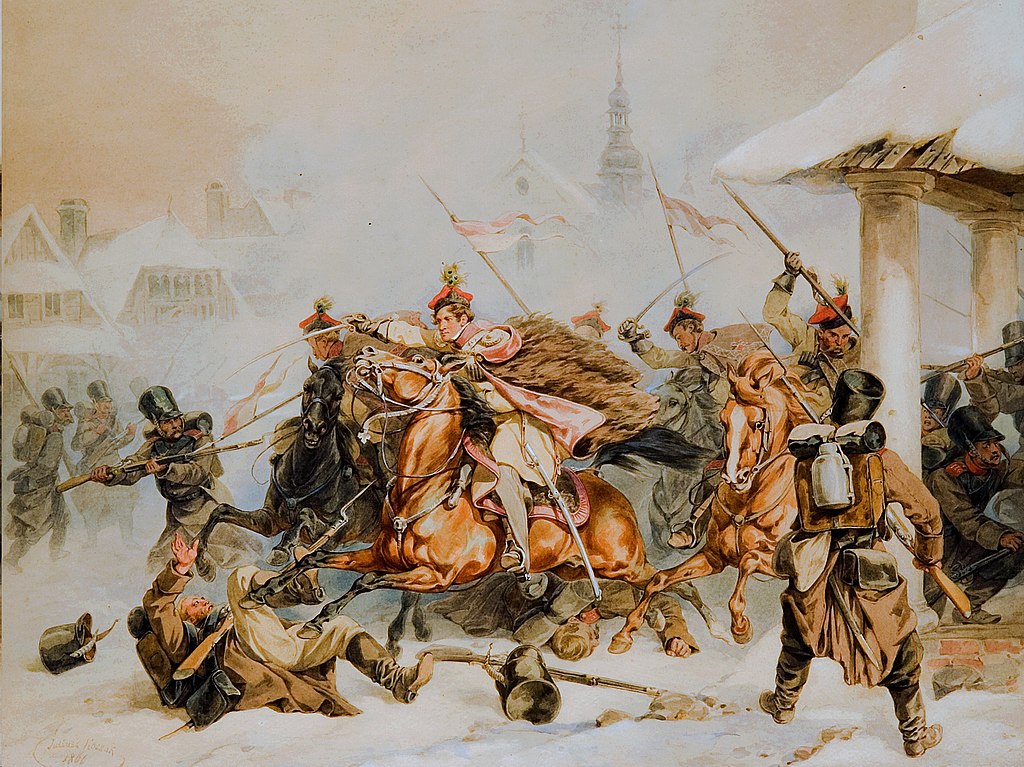The uprising of 1846, also known as the Kraków Uprising, was one of the most tragical Polish uprisings. Drawing inspiration for their acts from the Polish Democratic Society (Towarzystwo Demokratyczne Polskie, TDP), the insurgents were preparing their attacks in all three annexed territories at the same time. They wanted to rouse the Polish peasantry to fight under the banners of freedom, lifting drudgery and granting peasants rights to the lands they cultivated. TDP emissaries were active among pesants, informing them about the insurgents’ demands, while the nobility were preparing themselves to fight against the partitioners.
Unfortunately, the uprising had become pointless before it even began. The preparations in the territories under the Prussian rule were uncovered by the police, and the plotters were arrested. Attempted armed attacks were quickly put down. Using the conflict between the nobility and the peasantry, the Austrian partition authorities instigated peasants to go against their masters. Known as the Galician Slaughter, the events resulted in the death of thousands of noblemen, including many who were preparing for the uprising. In the territories under the Russian rule, there were sparse riots with few supporters, all of which were easily quelled by the Russian army. Kraków, a free city at that time, was the only place where the uprising broke out on a larger scale.
The insurgents threw the Austrian garrison out of the city and established the National Government, which declared itself the rightful Polish government. It issued an appeal aimed at rousing Polish people from all partitioned territories to the uprising. The manifesto follows the main trend in the then democratic thought. It proclaims Poland without any class division where all peasants’ duties towards the nobility would be lifted and where they would be granted property rights. It was the first uprising that propagated so radical slogans of social reform. This should not come as a surprise, since all of the National Government members were connected to TDP or underground organisations supported by TDP.
The government manifesto met with quite strong response from the inhabitants of Kraków and the area. There were even more volunteers to the uprising than the insurgents could equip. It soon turned out, however, that the expected riots in the remaning Polish lands were unsuccessful. The Austrian army entered Kraków and defeated the insurgents during one battle. The uprising was crushed, but it was undoubtably successful in putting the peasants’ cause first in the fight for the liberation of Poland.





